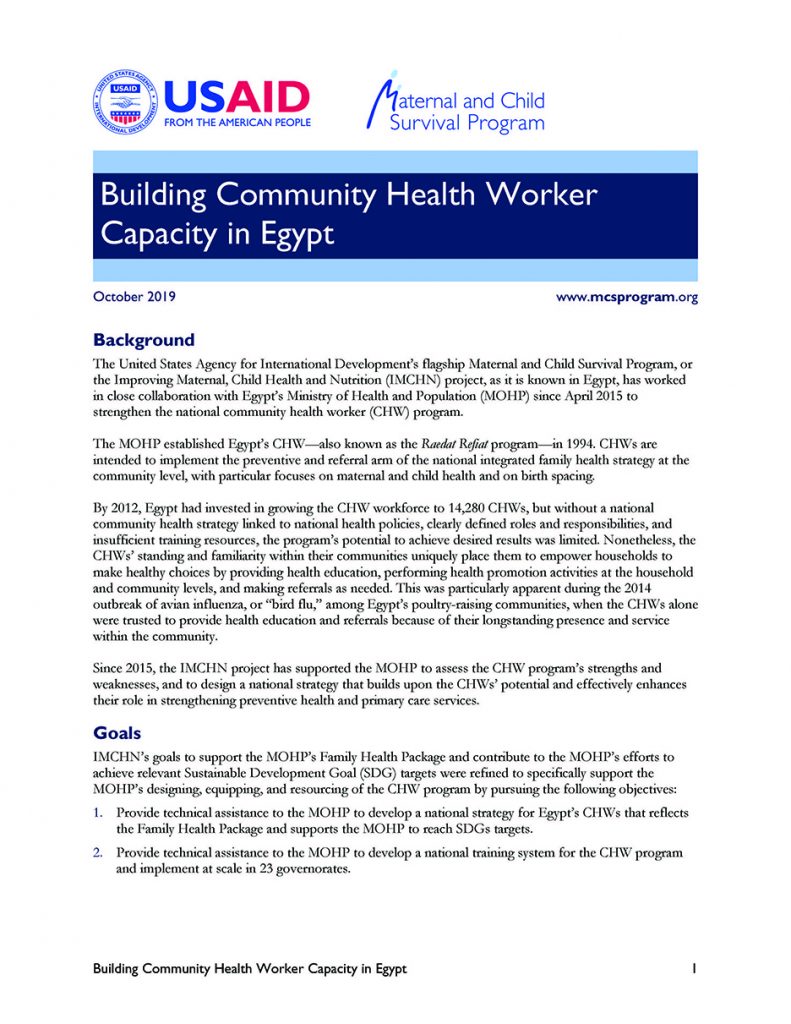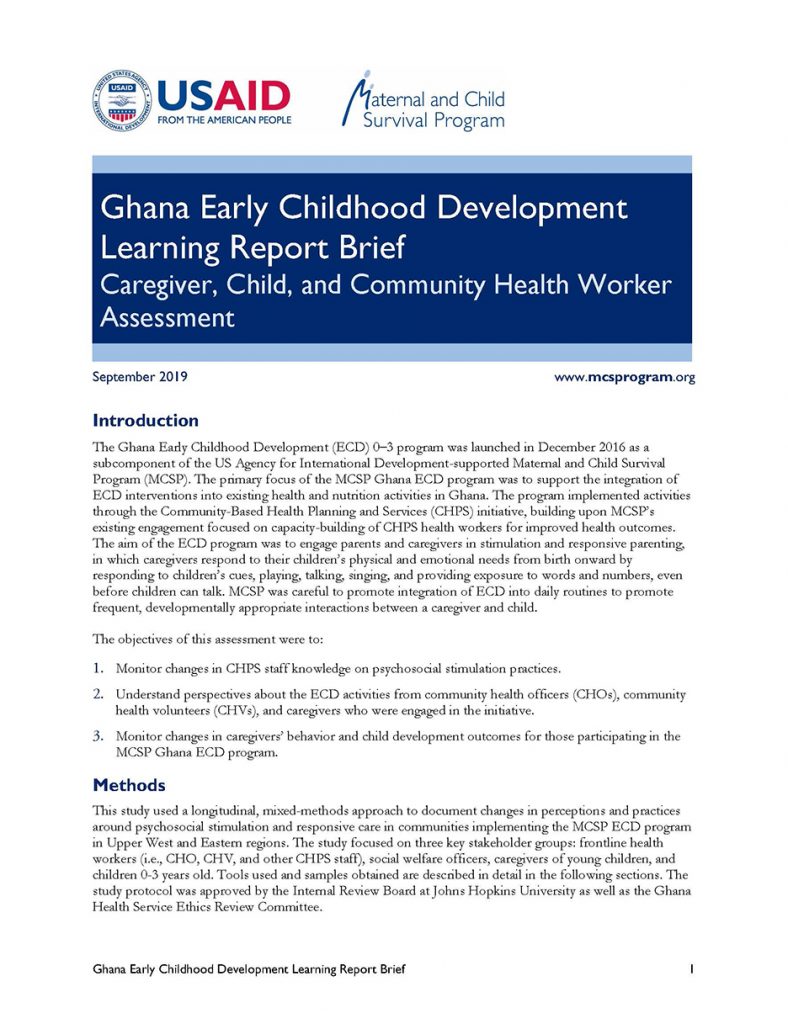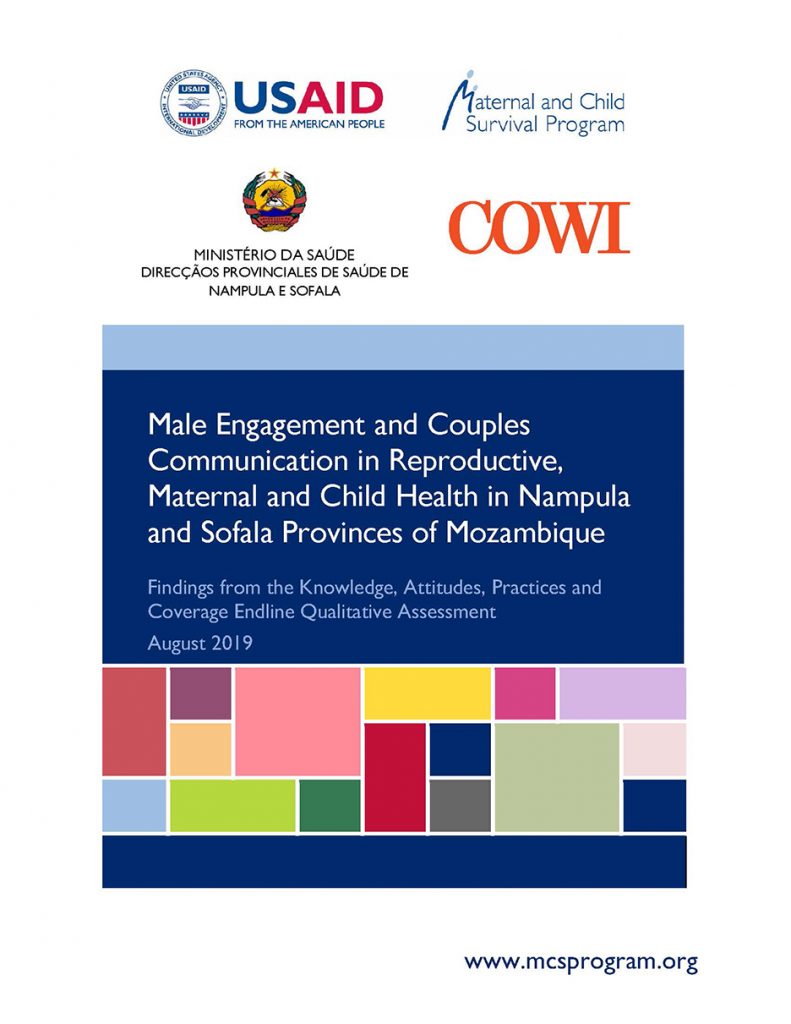
This qualitative male engagement study by MCSP Mozambique evaluates the feasibility and acceptability of male engagement interventions that encouraged couples’ communication aimed at increasing antenatal care attendance, joint birth preparedness and complication readiness plans, institutional birth, and use of modern Family Planning. The study also explores how decisions between couples are made and what may […]
Read More…
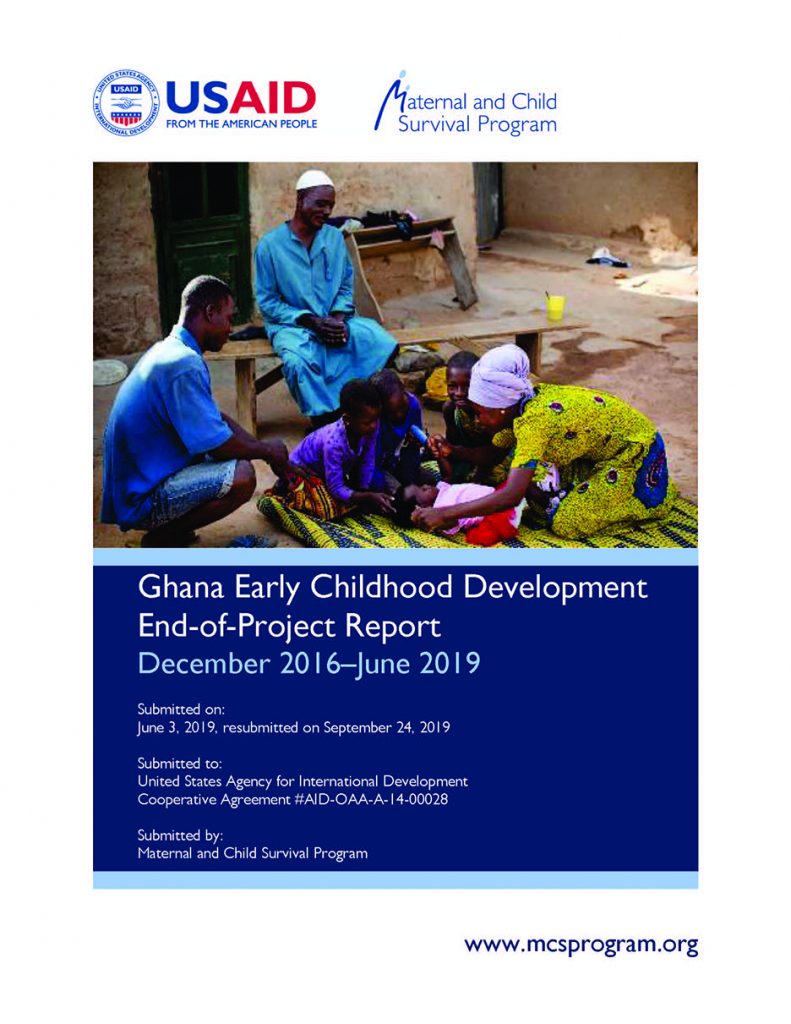
From December 2016 through June 2019, MCSP, in collaboration with the Ghana Health Service’s Family Health Division (FHD), successfully implemented early childhood development interventions (ECD), making significant progress toward national-, regional-, and district-level institutionalization of ECD. Through the life of project, MCSP built the capacity of 2,268 national-, regional-, and district-level health staff to deliver […]
Read More…
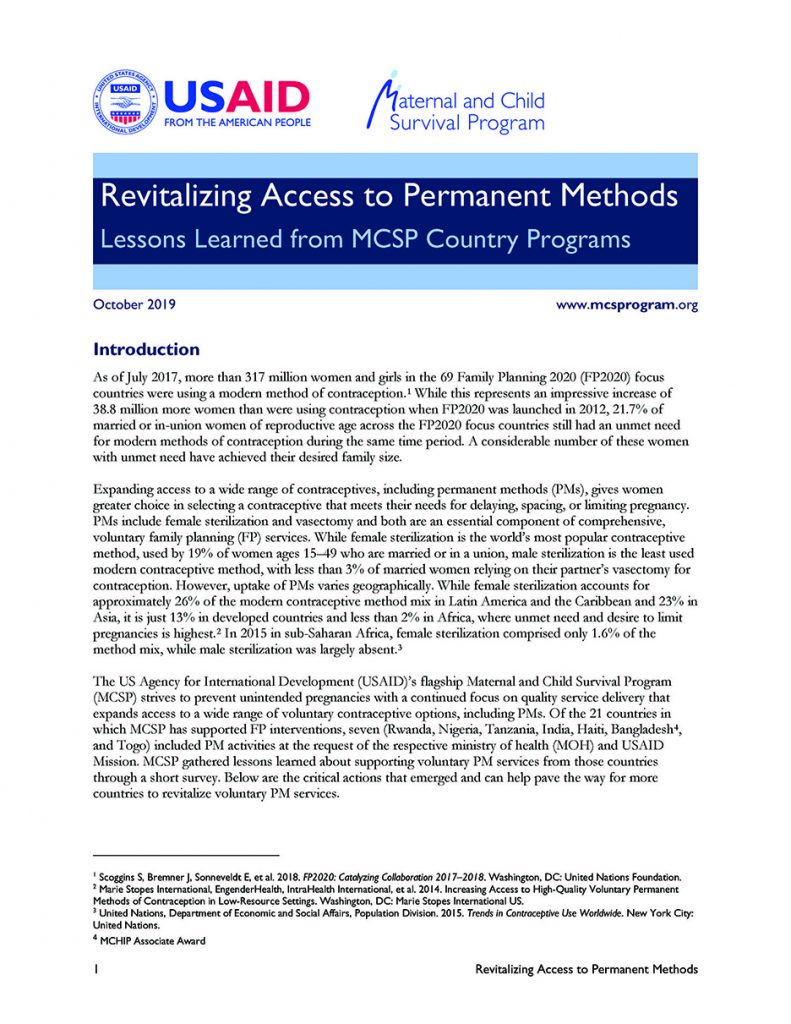
MCSP strives to prevent unintended pregnancies with a continued focus on quality service delivery that expands access to a wide range of voluntary contraceptive options, including permanent methods. Of the 21 countries in which MCSP has supported family planning interventions, seven (Rwanda, Nigeria, Tanzania, India, Haiti, Bangladesh, and Togo) included permanent method activities at the […]
Read More…
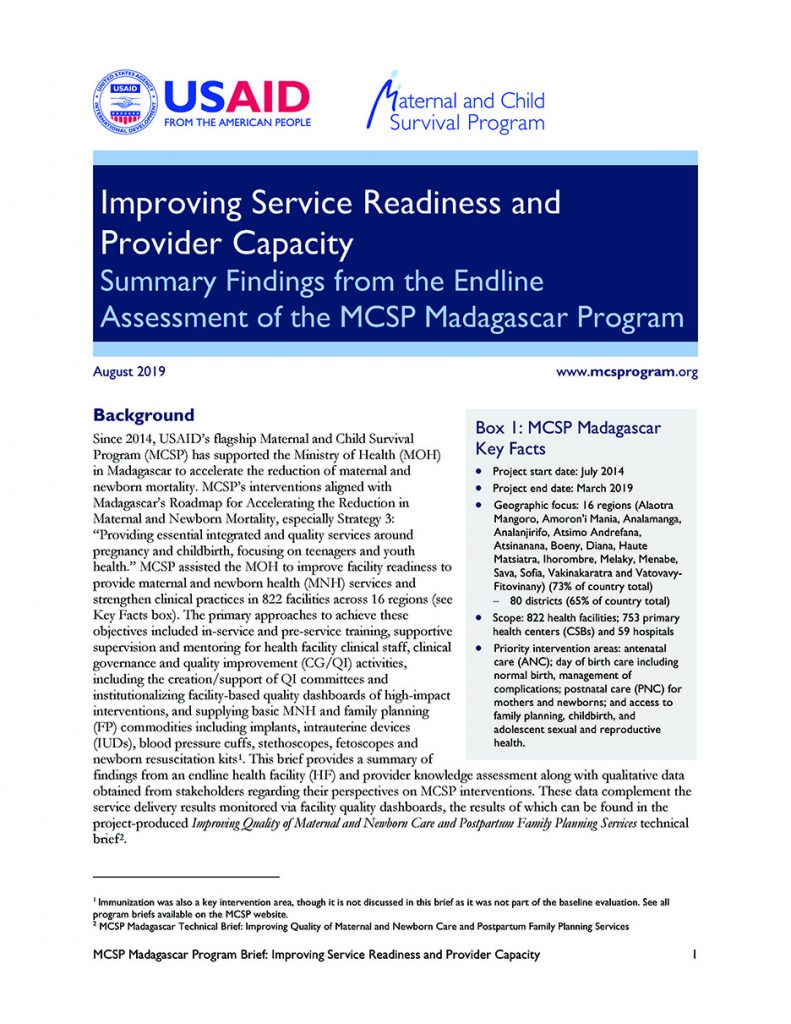
MCSP assisted the MOH in Madagascar to improve facility readiness to provide maternal and newborn health services and strengthen clinical practices in 822 facilities across 16 regions. The primary approaches to achieve these objectives included in-service and pre-service training, supportive supervision and mentoring for health facility clinical staff, clinical governance and quality improvement (CG/QI) activities, […]
Read More…
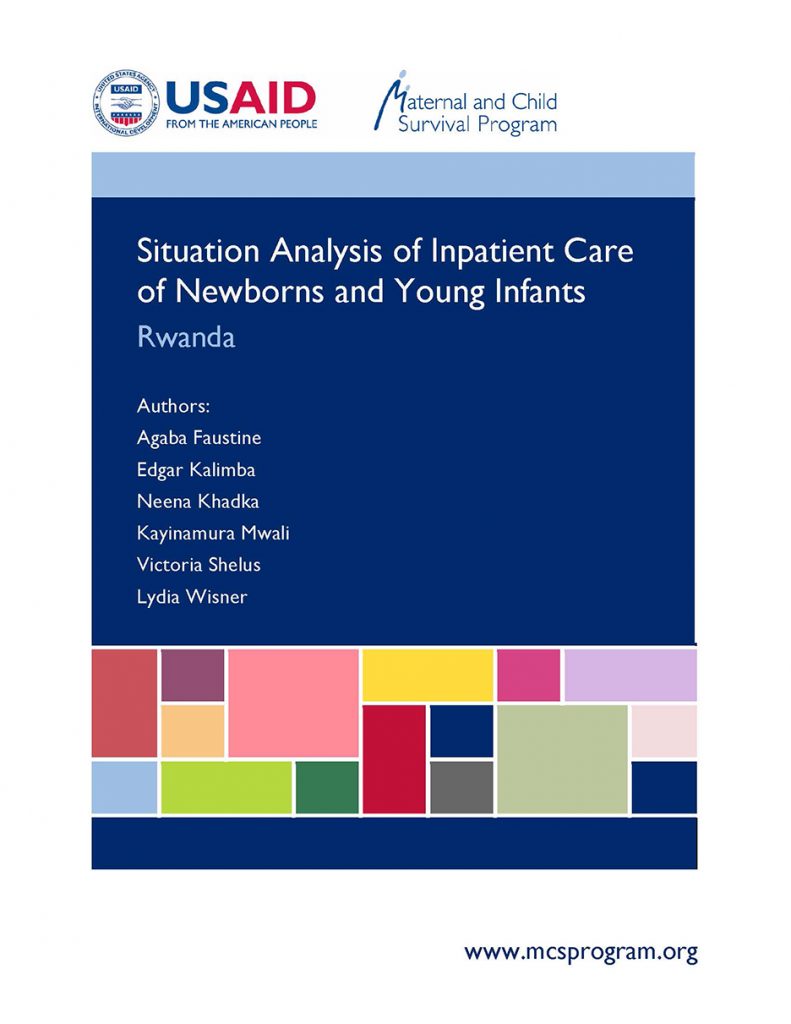
Rwanda’s Ministry of Health, with support from the MCSP, conducted a situation analysis of inpatient care of newborn and young infants to identify gaps within the continuum of care and to establish the link between the needs of small and sick newborns and the capacity of the health system to respond accordingly. […]
Read More…
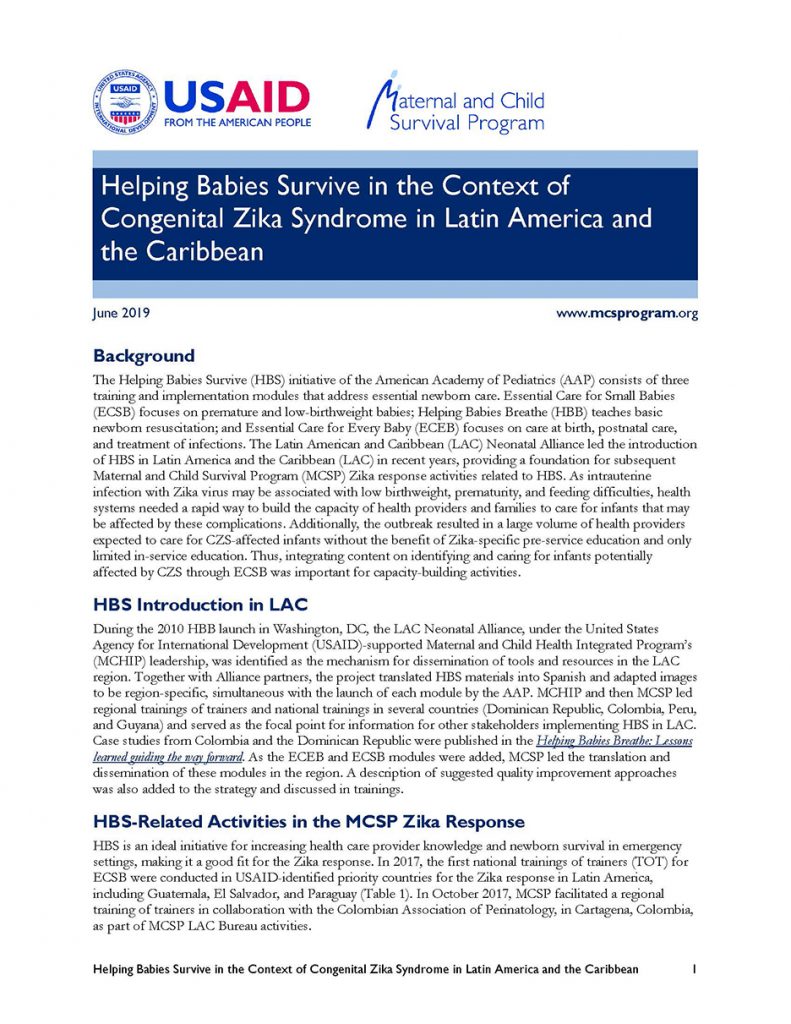
The Helping Babies Survive (HBS) initiative of the American Academy of Pediatrics (AAP) consists of three training and implementation modules that address essential newborn care. HBS is an ideal initiative for increasing health care provider knowledge and newborn survival in emergency settings, making it a good fit for the Zika response. […]
Read More…

Providers caring for women who live in, travel to, or have partners that travel to areas with active Zika virus transmission, can use the MCSP Zika Pregnancy Wheel as a job aid for counseling clients on key aspects of Zika infection prevention and management as well as estimating GA. This accompanying brief presents a summary […]
Read More…
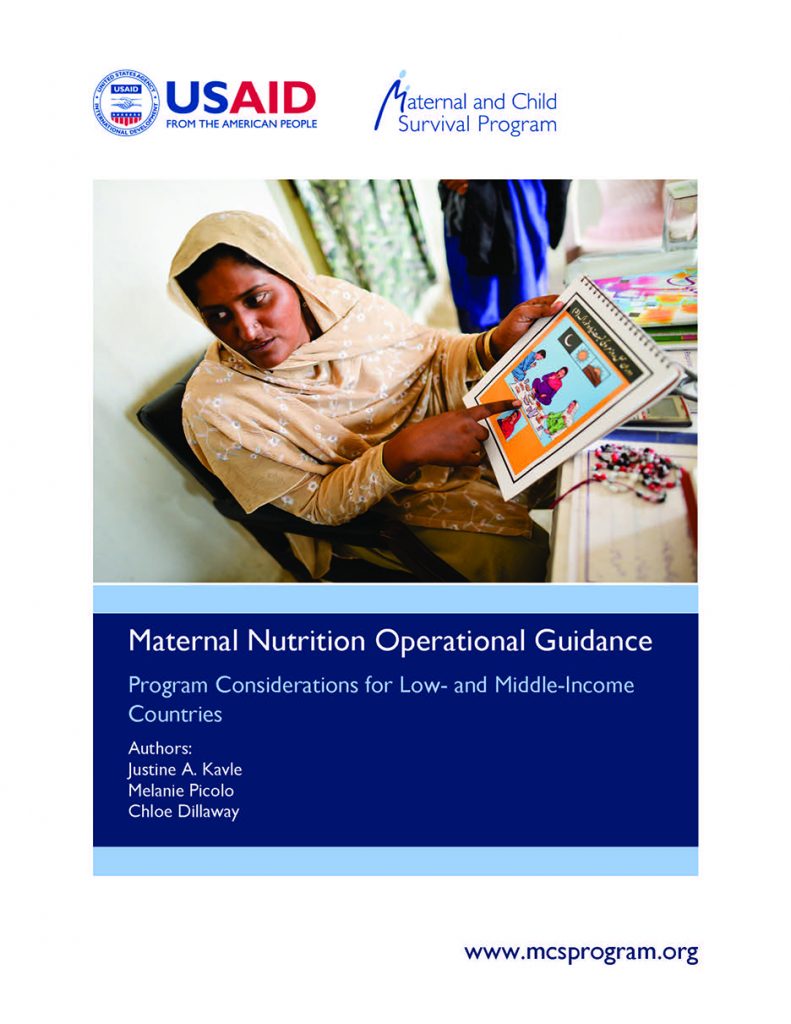
This document provides practical guidance on designing, implementing and strengthening the delivery of maternal nutrition interventions during pregnancy and lactation within the health system. This document is for use by ministries of health, nongovernmental organizations, and other implementing partners who deliver maternal nutrition interventions at the facility and/or community level and desire to add and/or […]
Read More…

